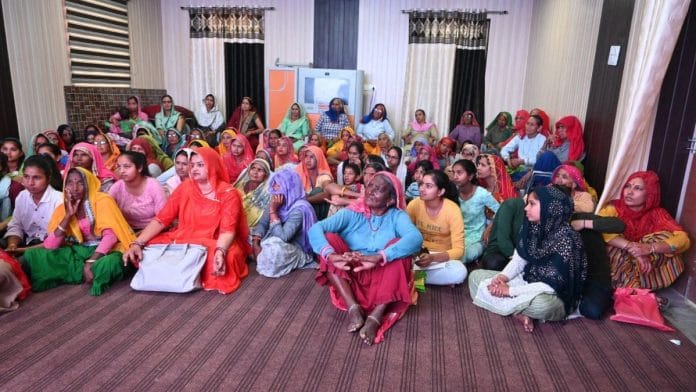Jhunjhunu/Jaipur: For 10 days, Pulwama widows Sundari Gurjar and Manju Jat protested at Shahid Smarak in Jaipur since 28 February. They were fighting for statues of their husbands who died in the 2019 terror attack and government jobs for their brothers-in-law. On the eleventh day, around 3 o’clock in the morning, the police came for the women. It destroyed their hope of raising the status of the ‘new’ men in their lives—their brothers-in-law.
Manju and Sundari returned to their villages, humiliated and broken.
“The police beat us mercilessly and later abandoned us in some remote hospital, miles away from our hometowns,” said 24-year-old Manju in horror and disbelief. After all these weeks, the bruises that mark her body have yet to fade. And it will take longer for her battered ego and bruised honour to heal.
The guilt and loss of face are heightened by the centuries-old social practice of chura pratha or Naatawhere a woman who has lost her husband puts on marriage bangles in the name of her brother-in-law or devar. He is no longer a mere relative, but a replaced spouse. Locally, the social transaction is referred to as a ‘settlement’. The devar will ‘restore the woman’s dignity’ within the household and the village. But like any transaction, his status is dependent on what she can bring to the table, and in the case of war widows, it’s cash, compensation and a job.
The custom, largely prevalent among agrarian communities in rural Rajasthan has clear implications: a woman is bound to either her devar or jeth (brothers-in-law) and not just in name. Social mores dictate that theirs is a conjugal relationship, and if he’s married, she has to maintain sororal ties with his legal wife.
“In many cases, families have three sets of children. First from the widow and her late husband, the second from the brother-in-law and his wife, and the third born out of the relation between the widow and the brother-in-law,” said Professor Rashmi Jain, head of the Sociology department, University of Rajasthan.
Also read: Gehlot meets war widows from across Rajasthan as protest by Pulwama widows simmers
Minefield of Naata
In Manju’s eyes, Chief Minister Ashok Gehlot’s response was the ultimate act of betrayal. In a state, which goes to polls this year, the protest quickly devolved into a political war. BJP leader Kirori Lal Meena joined the women in their fight. But Gehlot refused to meet the protesting women. Meena called it an insult to the shahadat or martyrdom of the brave soldiers. But in the end, the veteran Congress leader deftly defused the political storm.
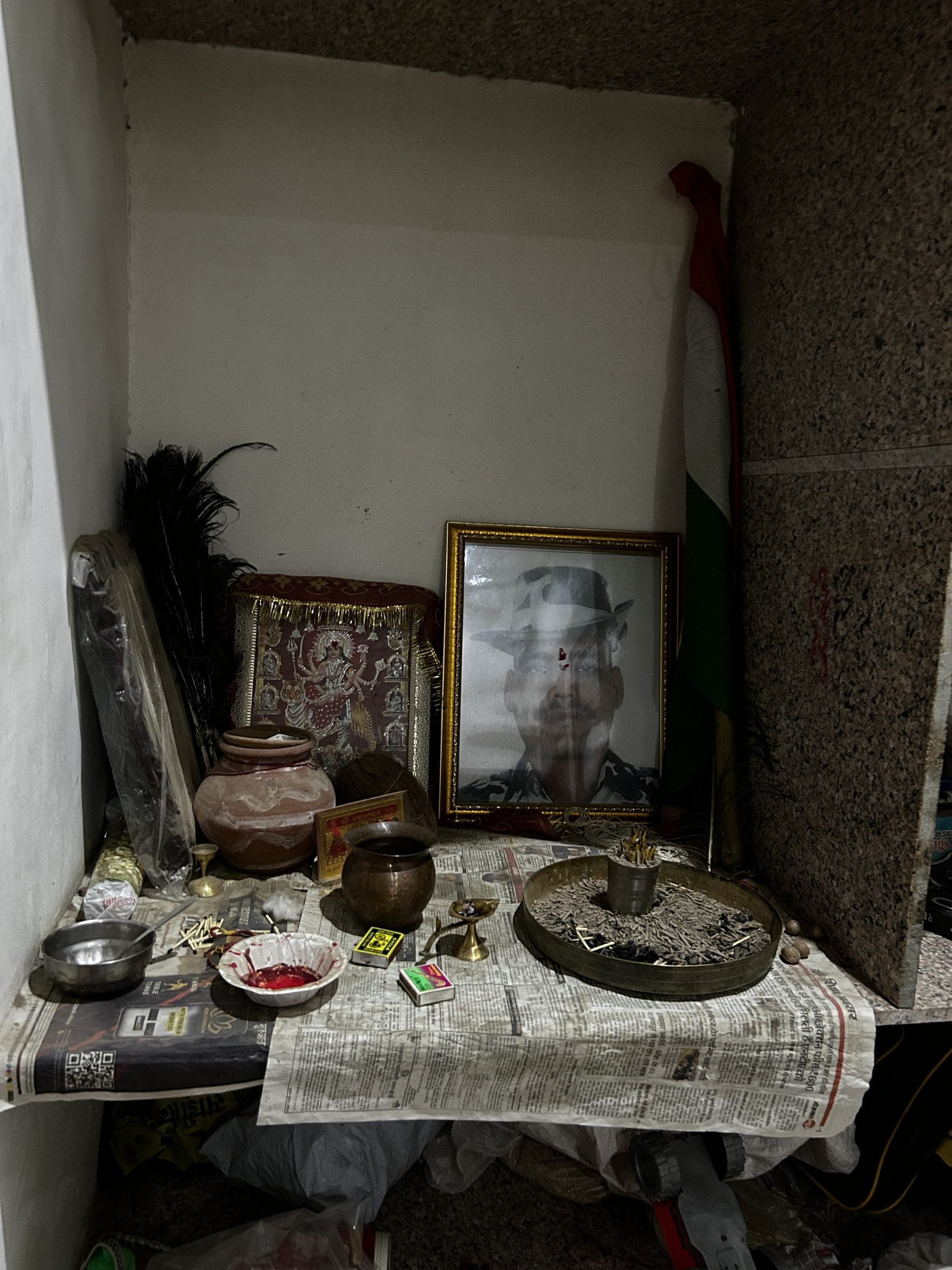
“It is not appropriate to give jobs and rights of war widows and their children to someone else. How can we justify giving a job to any other relative by trampling upon the rights of the children of the martyr?” said Gehlot.
The emotional appeal worked even as local media outlets hailed them as ‘veeranganas’, brave women.
But back home in Govindpura Basri. Manju’s former life and family ties are in tatters as she navigates the minefield that is Naata.
“Why did the leaders promise a government job for a family member, if they had to insult us like this?” she asked.
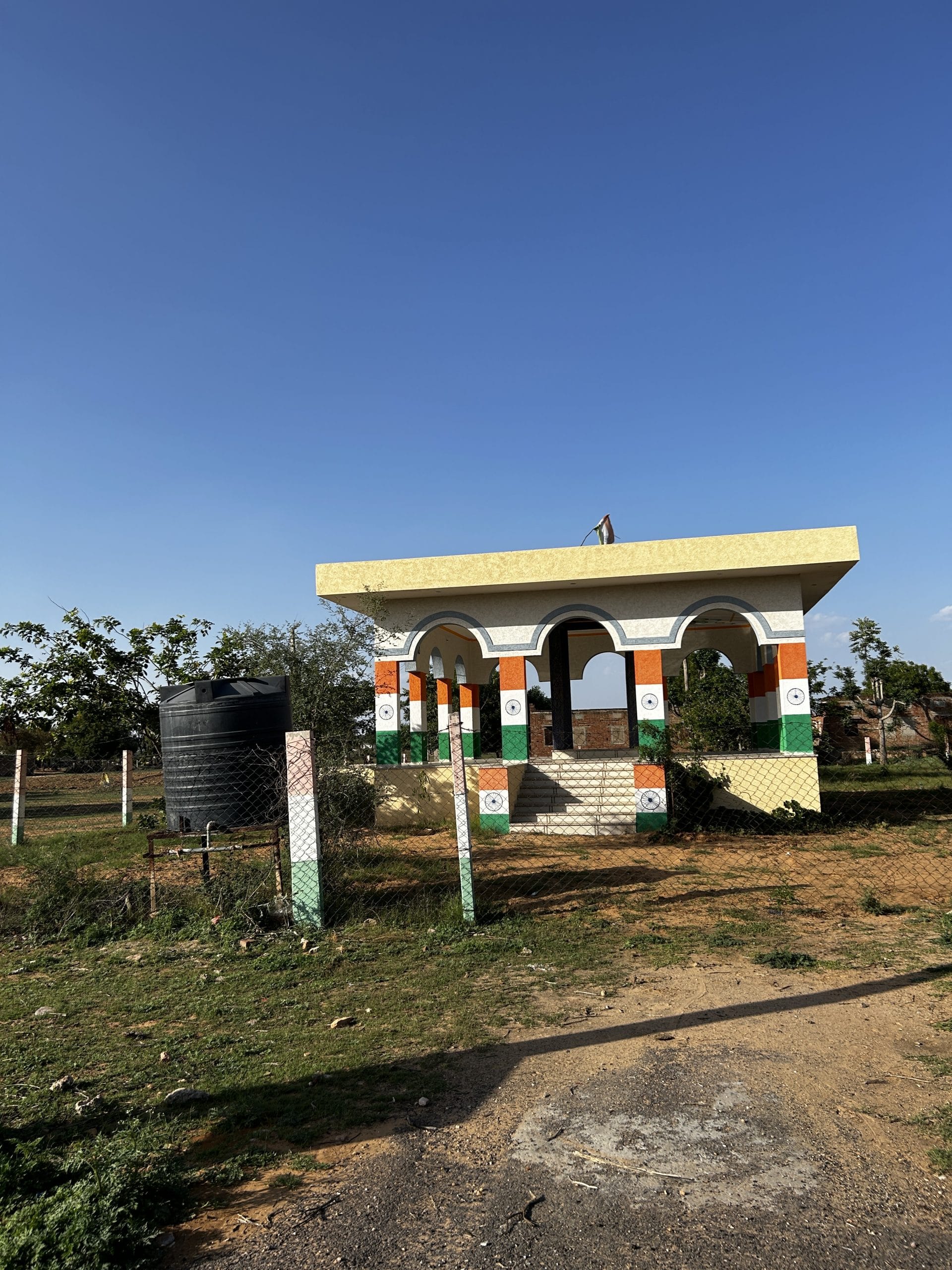
In 2017, Manju’s family got her married to Rohitash Lamba, a Central Reserve Police Force (CRPF) jawan (constable) from Govindpura Basri. And in the same ceremony, her younger sister Hansa Jat wedded Rohitash’s younger brother Jitender Lamba. It was as happy a family could be until 14 February 2019 when Manju learned that Rohitash was one of the 40 CRPF personnel in Lethapora, Pulwama, who was killed when a suicide bomber rammed his explosive-laden vehicle into a convoy with the jawans in it.
For a brief period, sympathy for Manju and her newborn son poured in from the state government, villagers and family members. But the young woman knew that without the protection of her husband, her safe world was going to end. Hansa was aware of this too.
It happened a year after Pulwama when Hansa was in the hospital giving birth to her first child. Her in-laws completed the settlement.
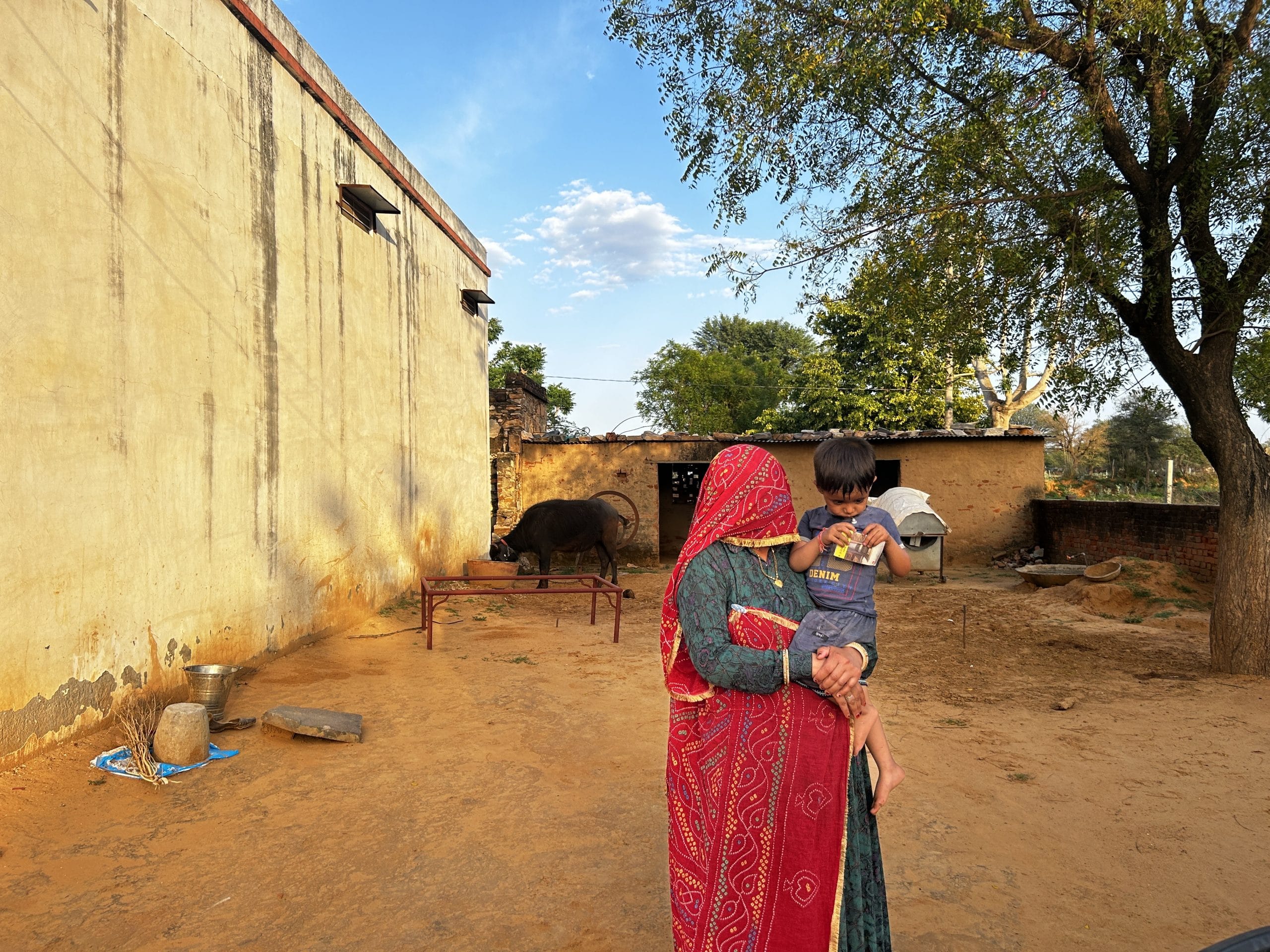
“My in-laws conspired behind my back and gave away my husband in chura pratha to her [Manju],” said Hansa. She blames her sister for stealing her husband, and her life.
“She got everything. Money, respect and even my husband.”
Her father-in-law, Babulal Lamba insists that he has to look beyond Hansa’s pain.
“It was the only way Manju and her son could live with dignity. We did what we felt right,” he told ThePrint.
But it broke the family. Within the four walls, fights grew louder. CCTV cameras were installed, police cases were filed and finally, Manju was shifted to the outskirts of Jaipur.
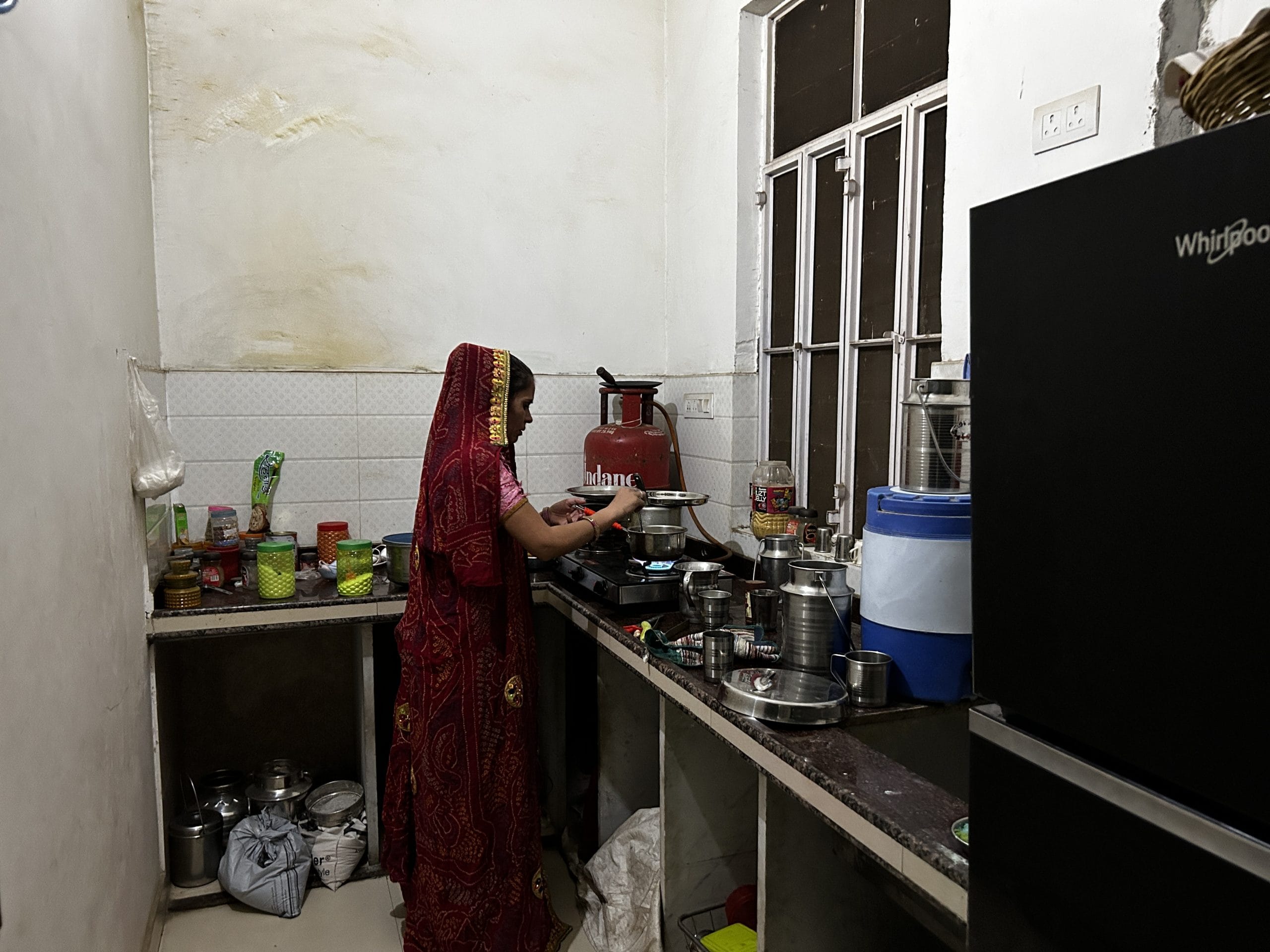
“Now my husband is barely home as he looks after them in Jaipur. This is suffocating me and I want my husband back,” Hansa said. But Manju and Jitender categorically deny having gone through the chura pratha.
Manju hit back at her sister and her brothers for eying the Rs 2.5 crore that she received as compensation from the state and central government and other institutions.
“Why did I protest and get injured? I was demanding a job for my sister’s husband.”
And now, Hansa doesn’t want this job for her husband anymore.
Around 250 km from the family’s house in Sundrawali village, 25-year-old Sundari is raising four children—two from her late husband and two she had with her brother-in-law. Relatives and family members didn’t allow her the traditional six-month grieving period to mourn the death of her husband Jeet Ram Gurjar, a CRPF jawan. The mother of two was ‘settled’ with her husband’s younger brother, Vikram Gurjar. He was barely 20 years old.
“We have one son and three daughters now,” said Vikram, who wanted to join the armed forces before the Pulwama attack.
“I gave up on my dreams and fulfilled what was expected of me. It is a custom and we have to make peace with it,” he added.
Before ‘settlement’ became a common practice, there was a time when women whose husbands had died—and not just in war—were not allowed to marry again. They were vulnerable to sexual harassment within the household and outside.
“They were seen as inauspicious beings with no social and cultural rights. So, this practice started with the aim of providing these women social security and their right to exist,” said Jain.
The intention may bring these women out of the shadows, but over time it has become “exploitative and regressive”. Land rights, male heirs, property and cash benefits in the case of Army wives take centre stage. The widow-wife is pushed to the sidelines.
“But what makes it a ku-pratha or an exploitive social practice, is the lack of choice women have,” said Manvendra Singh, Congress leader and chairman of the Soldier Welfare Advisory Committee.
Also read: Rajasthan’s Indira Rasoi is a success story — 9 crore thalis since 2020
Spread across rural Rajasthan
Savitri was barely 13 when she was married to a man in Lambi Ahir village in the Jhunjhunu district. Before she turned 17, her husband died in an accident. Her family, and her in-laws, forced her to bewith his brother. Until then all she knew about her new partner was that he was constantly falling ill.
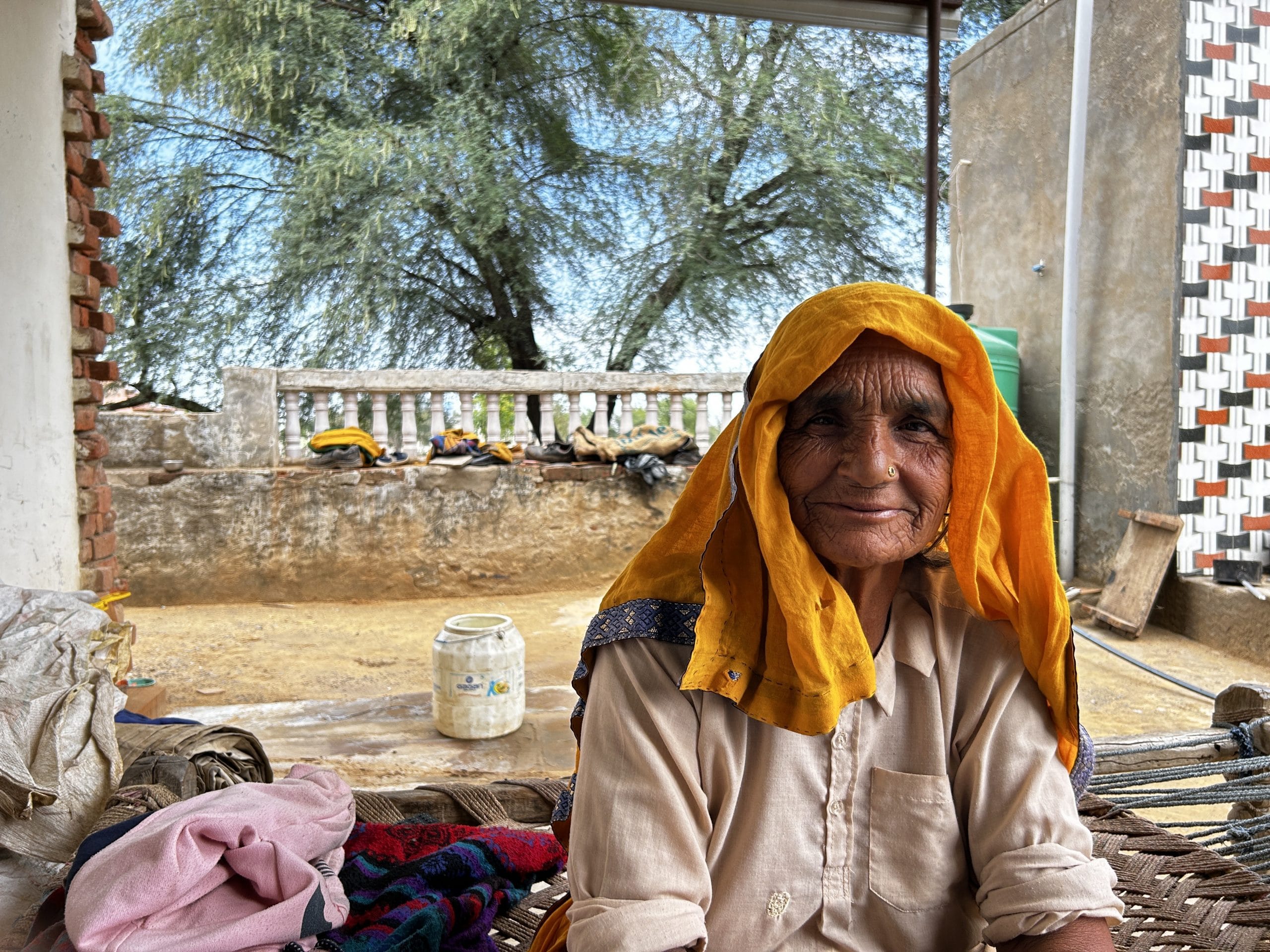
“But I had no say in the matter. If I had been given a choice, I would have taken a different decision,” said Savitri, now 70. A son and two daughters were born out of their relationship. But she considers herself fortunate. When he was not sick, her brother-in-law was a hard-working man.
“Many times, I have seen women being forced into a settlement where the brother-in-law is abusive or a drunkard or unemployed,” said Savitri.
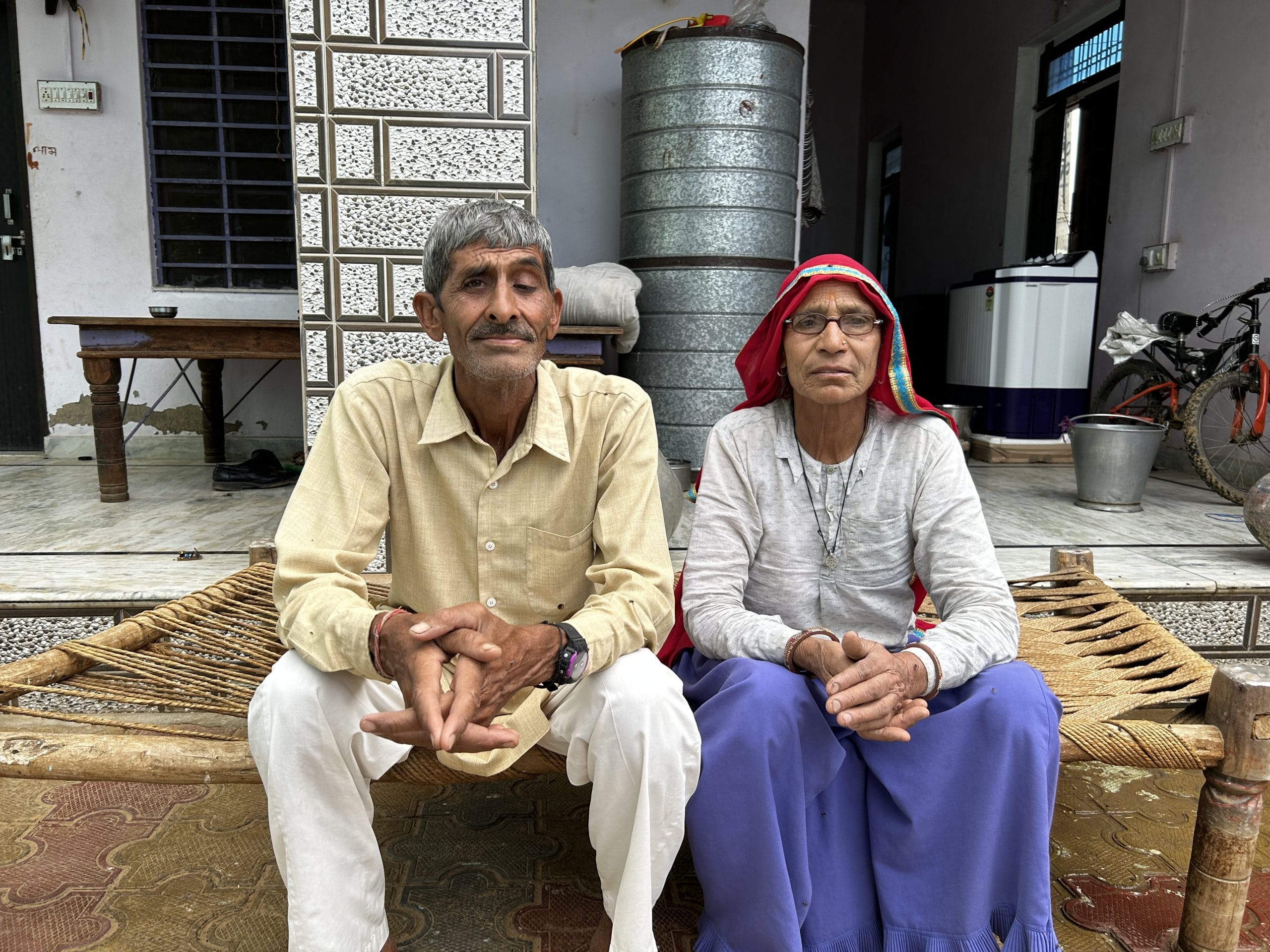
In the same village, 65-year-old Suresh Devi’s life followed the same trajectory—married in childhood, soon widowed, tied to her brother-in-law and had two daughters and a son.
“You cannot raise children if you are a widow. If you are seen talking to any man within the family or outside, everyone will scream and say that you are bringing shame,” said Suresh. She chose the ‘lesser evil’ that would afford her and her children security.
“We had a man overlooking us.” But the deal came with terms and conditions, which she fulfilled.
“I had to produce a male heir with my brother-in-law.”
This is the life of many Savitris and Sureshs in every village in eastern Rajasthan. But it takes a conflict and the loss of soldiers for this cauldron fraught with trouble to boil over.
Social security vs economic consolidation
The Pulwama pattern is not new to Rajasthan, which has 1,317 veer naris or war widows– among the top five states in India.
Widows in Rajasthan’s hinterland went through a similar upheaval after the Kargil war but it was away from the media glare.
“There was huge cash compensation. Petrol pumps and land came along with the statues and respect for the soldier’s families. Soon greed took over and families fought with widows over the rightful heir. Many cases went into litigation,” Jain recalled the years after the war.
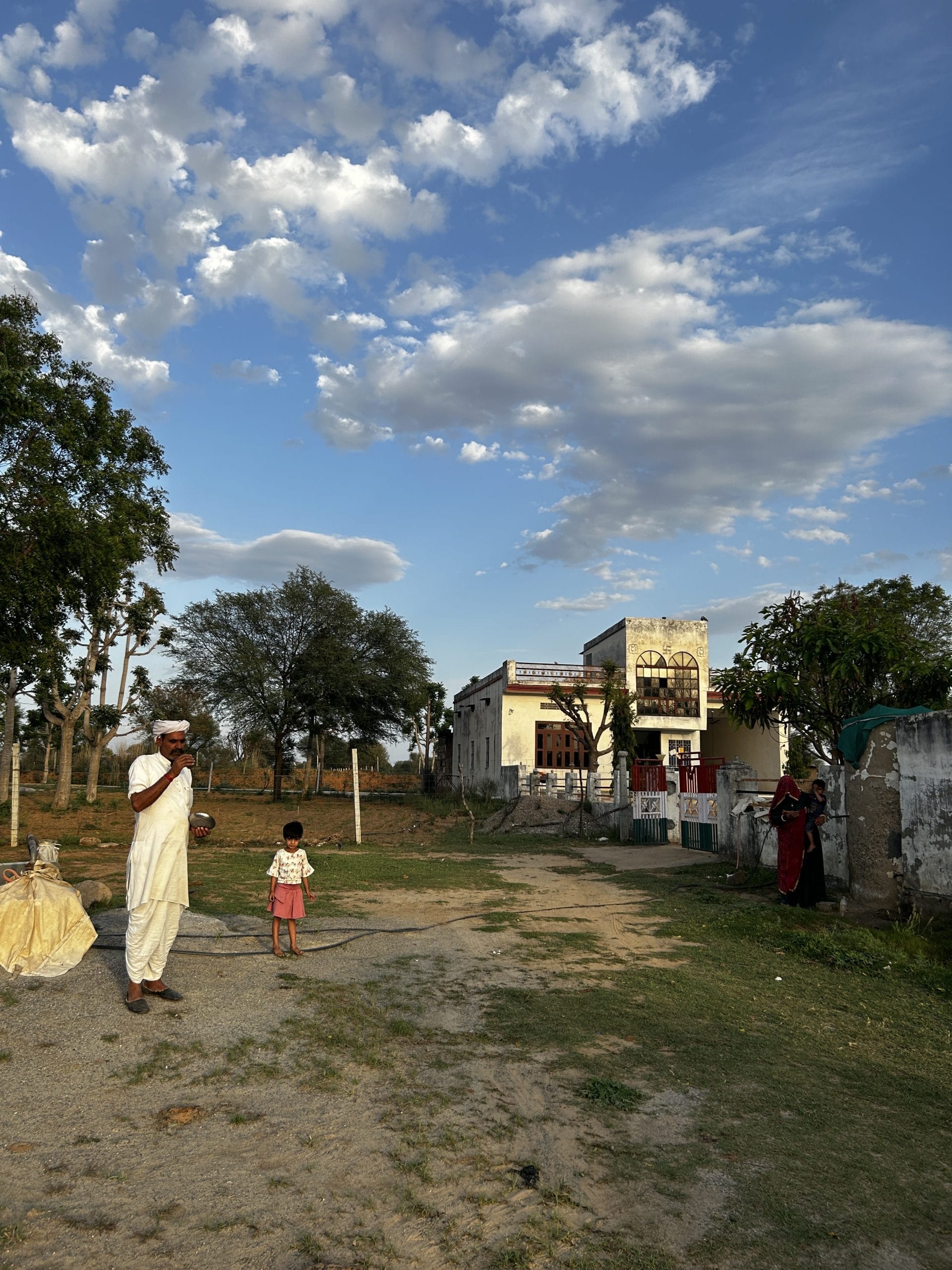
The ramifications of the social disruption moved Neeru Yadav, a first-time sarpanch in Lambi Ahir to take action.
While growing up, she followed the case of a Kargil veer nari who was abandoned by her in-laws after they exhausted her compensation.
“The woman was also forced to live with her brother-in-law. When the cash ran out, the man went on to marry and start a new life. The widow led a miserable life,” said Yadav.
As a sarpanch, she now has the tools and the opportunity to wage war against this custom. When a local filmmaker, Arvind Chaudhary, made a short film on the practice of chura pratha in 2021, she organised a screening in the village. Shot in the local dialect, the film, Haath Rupya, depicts the realities of young widows who are forced into the age-old practice.
To Yadav’s surprise, more than a hundred women came to watch the film.
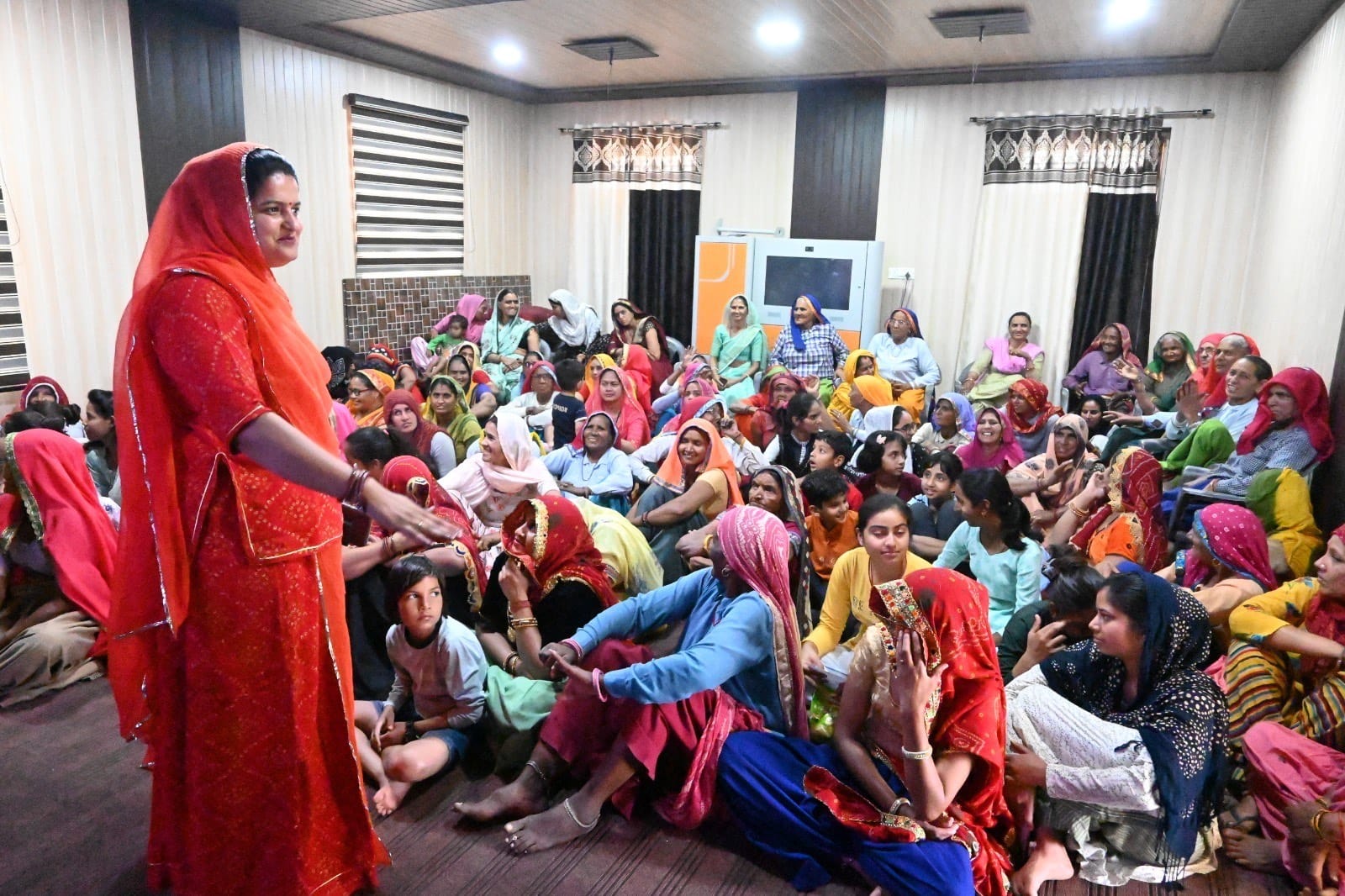
“With this film, we started a conversation around women and their rights. For the first time, women in my village saw their lives from a different lens. For the first time, they called it a ku–pratha, evil custom,” she said.
(Edited by Ratan Priya)



